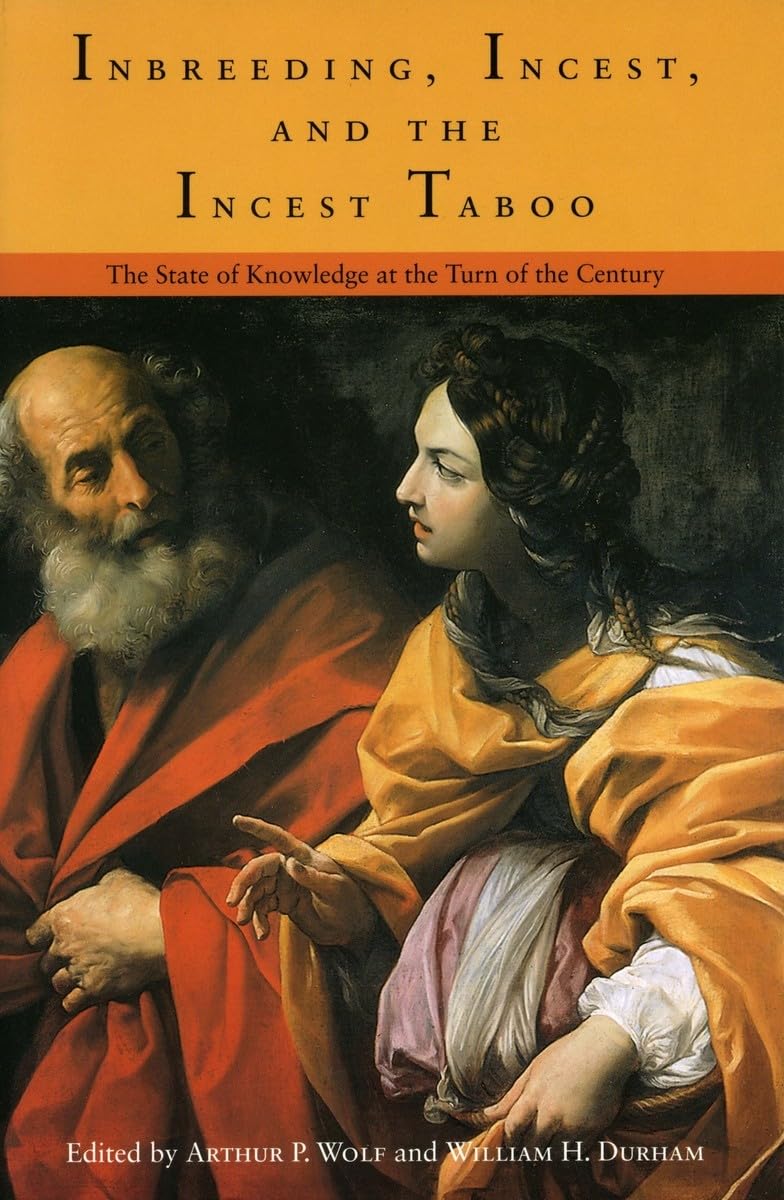
Title

Inbreeding, Incest, And The Incest Taboo: The State Of Knowledge At The Turn Of The Century
Delivery time: 8-12 business days (International)
Is Inbreeding Harmful? Are Human Beings And Other Primates Naturally Inclined To Mate With Their Closest Relatives? Why Is Incest Widely Prohibited? Why Does The Scope Of The Prohibition Vary From Society To Society? Why Does Incest Occur Despite The Prohibition? What Are The Consequences? After One Hundred Years Of Intense Argument, A Broad Consensus Has Emerged On The First Two Questions, But The Debate Over The Others Continues. That There Is A Biological Basis For The Avoidance Of Inbreeding Seems Incontrovertible, But Just How Injurious Inbreeding Really Is For Successive Generations Remains An Open Question. Nor Has There Been Any Conclusion To The Debate Over Freuds View That The Incest Taboo Is Necessary Because Humans Are Sexually Attracted To Their Closest Relativesa Claim Countered By Westermarck'S Argument For The Sexually Inhibiting Effects Of Early Childhood Association. This Book Brings Together Contributions From The Fields Of Genetics, Behavioral Biology, Primatology, Biological And Social Anthropology, Philosophy, And Psychiatry Which Reexamine These Questions.
By changing our most important processes and
products, we have already made a big leap forward. This ranges from the
increased use of more sustainable fibers to the use of more
environmentally friendly printing processes to the development of
efficient waste management in our value chain.
⚠️ WARNING (California Proposition 65):
This product may contain chemicals known to the State of California to cause cancer, birth defects, or other reproductive harm.
For more information, please visit www.P65Warnings.ca.gov.
Shipping & Returns
Shipping
We ship your order within 2–3 business days for USA deliveries and 5–8 business days for international shipments. Once your package has been dispatched from our warehouse, you'll receive an email confirmation with a tracking number, allowing you to track the status of your delivery.
Returns
To facilitate a smooth return process, a Return Authorization (RA) Number is required for all returns. Returns without a valid RA number will be declined and may incur additional fees. You can request an RA number within 15 days of the original delivery date. For more details, please refer to our Return & Refund Policy page.
Shipping & Returns
Shipping
We ship your order within 2–3 business days for USA deliveries and 5–8 business days for international shipments. Once your package has been dispatched from our warehouse, you'll receive an email confirmation with a tracking number, allowing you to track the status of your delivery.
Returns
To facilitate a smooth return process, a Return Authorization (RA) Number is required for all returns. Returns without a valid RA number will be declined and may incur additional fees. You can request an RA number within 15 days of the original delivery date. For more details, please refer to our Return & Refund Policy page.
Warranty
We provide a 2-year limited warranty, from the date of purchase for all our products.
If you believe you have received a defective product, or are experiencing any problems with your product, please contact us.
This warranty strictly does not cover damages that arose from negligence, misuse, wear and tear, or not in accordance with product instructions (dropping the product, etc.).
Warranty
We provide a 2-year limited warranty, from the date of purchase for all our products.
If you believe you have received a defective product, or are experiencing any problems with your product, please contact us.
This warranty strictly does not cover damages that arose from negligence, misuse, wear and tear, or not in accordance with product instructions (dropping the product, etc.).
Secure Payment
Your payment information is processed securely. We do not store credit card details nor have access to your credit card information.
We accept payments with :
Visa, MasterCard, American Express, Paypal, Shopify Payments, Shop Pay and more.
Secure Payment
Your payment information is processed securely. We do not store credit card details nor have access to your credit card information.
We accept payments with :
Visa, MasterCard, American Express, Paypal, Shopify Payments, Shop Pay and more.
Related Products
You may also like
Frequently Asked Questions
- Q: What is the main topic of 'Inbreeding, Incest, and the Incest Taboo'? A: The book explores the implications of inbreeding and incest, discussing biological, psychological, and cultural perspectives on why incest is prohibited and its effects on individuals and societies.
- Q: Who is the author of this book? A: The author of 'Inbreeding, Incest, and the Incest Taboo' is Arthur P. Wolf.
- Q: How many pages does this book have? A: The book contains 239 pages.
- Q: What is the publication date of this book? A: The book was published on November 1, 2004.
- Q: What type of binding does this book have? A: This book is available in paperback binding.
- Q: What condition is the book in if it is labeled as 'Used Book in Good Condition'? A: A 'Used Book in Good Condition' indicates that the book may have minor wear but is overall in satisfactory condition for reading.
- Q: Is there a consensus on the harmful effects of inbreeding mentioned in the book? A: The book states that there is a broad consensus on the biological basis for avoiding inbreeding, though the extent of its harm remains a debated topic.
- Q: What disciplines contribute to the discussions in this book? A: Contributions come from genetics, behavioral biology, primatology, anthropology, philosophy, and psychiatry.
- Q: Are there any controversial theories discussed in the book? A: Yes, the book discusses Freud's views on the incest taboo and counterarguments by Westermarck regarding early childhood associations.
- Q: What themes are explored regarding the incest taboo across different societies? A: The book examines why incest is prohibited, the variations in prohibitions across cultures, and the reasons incest occurs despite societal rules.
